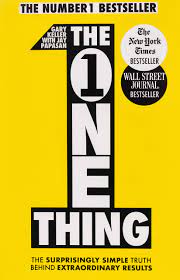As an Operations Manager working within the creative digital industry, I tend to wear several hats. And one of them is looking after our team of creative designers.
I sometimes refer to myself as a mother hen, clucking around her chicks. And it’s not an exaggeration. Creative people do need a bit of extra support because they use a lot of brainpower to come up with unorthodox solutions to complex questions. They also have direct access to elusive deities of inspiration, which requires certain skills. My role is to make sure all the routine tasks are removed from their paths.
But whether I want it or not, my team of creative designers will still need to hone their organisational skills to make sure that what we produce is delivered on time and within budget. Sorry, creatives. And that’s where personal efficiency comes in handy. And time management in particular.
As I have over 15 years of experience in the industry, I have handpicked 11 useful time management tips that any creative professional should be able to apply. My goal was not to give my team more things to do. Not at all. I merely wanted to equip them with useful instruments that they could lean on from time to time.
These tips should not be used all at once. No need to overwhelm ourselves. Instead, they are to be treated as a selection of tips and tricks to be selected from.
Even though I wrote this article and these tips with my team of creatives in mind, they will be suitable for any industry and any type of resource.
I hope you find them useful. Here they come:
1. Burn your to-do lists and create an action plan
Not literally. But to-do lists might cause real anxiety if approached without a system in mind.
Imagine creating list after list, task after task and then looking at it all. What sensations come up to the surface when you think about it? Heart palpitation? Hand sweating? I would say all of the above, plus some more.
This is because you have a list of never-ending tasks without an actionable component added to it.
According to The Busy Person’s Guide to the Done List by Bailey Adams - 41% of items we put on the to-do list never gets done. It’s because they are quite often random and uninspiring, without any distinction between urgent and trivial tasks.
Successful time management requires a to-do list that is an action or a goal. Only then it’s useful. When it’s not an action, it’s just a heavy load. Throw it away, now.
What does an action plan need to contain?
How long a task might take
Hours available to you to complete this task
Priorities for today
Sub-tasks within your tasks
Items that might need to be outsourced/delegated
2. Be religious about daily highlights
This technique is extremely simple: every morning, identify one thing that you have to complete today. It could be the most urgent request or the priority for today. Or it could be something you’ve been putting off for weeks.
Your daily highlight needs to be an important task that, once complete, could make you feel better about yourself, the day and the goals you are achieving.
Other items on your list might be as important but not the most important for the day. Hence if you complete that one task, you are on the right track.
The One Thing is a very useful book to read if you’d like to learn more about prioritising just one thing to achieve great results.

The One Thing
The One Thing: The Surprisingly Simple Truth Behind Extraordinary Results: Achieve your goals with one of the world's bestselling success books.
3. Capture ideas as soon as they arrive
This might sound like common sense advice, but you’d be surprised to know how often we humans, and creative humans, in particular, forget those amazing ideas that tend to grace us with their presence.
That is why it’s a good idea to learn to capture ideas as soon as they come. Have a notepad at the ready at all times. Or use your phone's inbuilt note-taking app. Whatever it is, get into the simple habit of capturing your ideas.
This will also help to keep your brain free from myriad swirling and competing thoughts and ideas. Once an idea is captured, you can relax and move to something else.
4. Challenge your ‘yesterday self’
How often do you start working on a task only to realise how tired/bored/uninspired you are?
This happens to the best of us, so do not despair. Instead, try this simple trick: compete with yourself.
Say you need to create a design for a client's website. You know you created something similar a while back. Give yourself an allocated time frame to do it and then try and beat that time by completing the first draft quicker.
It’s not about quality vs quantity at this stage. You merely need to ignite your creative juices to help you stay on track.
Once the first draft is complete, challenge yourself to create yet another version.
It might sound counter-intuitive, but by giving yourself more tasks you are reducing the amount of time you can spend on each task. As a result, you are forced to be more focused. Remember Parkinson's law:
"Work expands according to the time available for its completion."
Give yourself less time and challenge yourself to even more tasks, and you might surprise yourself by completing them all ahead of time.
But be aware of an optimism bias, where you underestimate how long a task might take and end up under pressure when you cannot complete it on time.
5. Fall in love with time blocking
Time blocking is another super simple tool that could be used to make your life easier.
According to an INC. com article, Elon Musk plans every hour of his day between 7 am and 6 pm. Which, I suppose, helps him to complete all important tasks and avoid distraction.
Every time there is a task you need to spend some time on - block this time in your calendar. Set up an alert to be notified about it. Make sure you do not override it with other tasks that will inevitably creep in. Consider the blocked time a sacred time that you have to follow through with or else.
Stick to it, and you’ll notice surprising results after some time.
6. Get to know the two minutes rule
This technique has been highly recommended by Dave Allen and his cult-like book the GTD method or Get Things Done.
If there is a task at hand that will only take a few minutes to complete - do not add it to your action list - do it straight away instead.
This simple trick will help you save a lot of time and nerve cells. Because if you add up all your tiny 2-minute tasks together, they might turn into a true monster, one that requires hours of your precious time.
7. Use the Pomodoro technique
The Pomodoro technique is like marmite. People either love it or hate it.
I do not encourage you to use this technique on a regular basis as it might become rather repetitive. But for urgent or complex tasks, this technique is the best. It’s also useful when you need to shake up your creativity - not that creative people suffer from the lack of inspiration very often.
The rules of this game are very simple:
Decide how long a task will take (e.g. 2 hours)
Set your alarm for 25 minutes x 4 (or 45 minutes, if you prefer longer stretches of work)
Add 5 minutes breaks in between(you can have a longer break if you want to)
Repeat until the task is done
The trick is to try to complete it within an allocated time frame.

The Pomodoro Technique
Find out more about the Pomodoro Technique from this Todoist article. They suggest that the secret to effective time management is 'thinking in tomatoes rather than hours.' If 'one tomato until lunch break' does not aid productivity, it will definitely help to boost creativity.
8. Banish distractions for good
Creative brains, in my opinion, are different from non-creative brains in their ability to see the problem in multiple dimensions. Creative people can draw and doodle a solution. They can probably sing it if needed; that’s how talented they are.
But even though this talent is useful, it might also lead to being too susceptible to distraction, pulled in several directions at the same time.
The advice from the authors of The Book of Ichigo Ichi is to avoid distraction by making a task at hand feel like the most important thing in the world. If it does not come naturally, try a ‘fake it till you make it’ approach. There is a good TED talk on this.
And make sure you go all in. Disappear in your task, serenade it, if you must. But make sure it’s the love of your life, at least for the next hour or so.
When you start practising turning any task you are currently working on into the one and only task to think about, it will be so much easier to avoid distraction and achieve great results.
And obviously, hide your phone, switch off email notifications and put a ‘do not disturb sign on your door.
9. Apply the 80/20 rule (the Pareto principle)
All the tasks we have could be divided into important and not important.
The Pareto principle suggests that you need to spend 80% of all your time on 1 or 2 tasks or actions. And only 20% of the remaining tasks on the other 8 or 9 items on your list.
Even the most carefully devised action plans might not help us to achieve our goals. Because the chances are they will still contain a certain layer of fillers - tasks that are not that important.
Following this principle, we need to identify those most important tasks of the day and concentrate our initial time and energy on those tasks only. What time is left could be spent on other screaming but not really important tasks.
Practising this rule will eventually teach us to only add the most important items to our lists. We will reprogram our brains to identify those fillers before they take hold of our attention.
10. Schedule ‘me time’
This might not sound like a time management technique, but trust me - it is.
As an employee, you are entitled to some ‘me time’. Whether it's company training, looking for inspirations, daily lunch breaks away from your desk or all of the above. You need to block time in your calendar just like you do for your project or company-related tasks.
No one can be productive 7-8 hours in a row. You need to make sure you take regular breaks, go away from your desk, ignite your imagination by watching inspirational videos, scrolling through social media or reading blog posts. Yes, it’s all in your job description.
And as a project manager, I am interested in every team member working on the project as much as they can. But as a psychologist, mentor and manager, I know how important ‘me time’ is for creativity and productivity. The more rested and rejuvenated the creative resources are, the better outcome for the project. I call it a win-win scenario.
So go ahead, and make sure I can see regular lunch breaks scheduled in your calendars.
11. Stand up every hour
Yet again, this might not sound like a productivity or time management tip at all, but believe me, it is.
All people, creative professionals, in particular, might forget to eat when in the zone. Not eating is bad for your stomach. But not moving from your desk is even worse. You might think you are producing something amazing if you are not leaving your desk. But the chances are, your creativity disappeared a long time ago, but you didn't notice because you are on a roll.
A simple tip is to set a reminder for every hour to stand up and stretch your legs. You will notice how beneficial this advice is as standing up helps your body to realign itself with the earth’s gravitational pull. Apparently, astronauts might lose up to 20% of their muscle mass only after 5 to 11 days in space. All because they lack the helping hand of gravity to strengthen their muscles.
A simple act of standing up sends fresh blood and oxygen to your brain, which in return helps you to come up with amazing creative ideas.
So to improve your time management skills - stand up at least every hour. There is a fascinating 15 minutes podcast on the BBC from Dr Mosley on this subject.
Final thoughts
Personal effectiveness and an ability to manage one's own time affects both productivity and creativity.
Creativity is often dependent on inspiration. But in all honesty, a professional should be able to master any creative inspiration with the help of good productivity tools and techniques.
Remember that quote attributed to William Faulkner:
“I only write when inspiration strikes. Fortunately, it strikes at nine every morning.”
Inspiration is not this allusive fairy that you need to sit and wait for. Inspiration is something we create when we know what we are doing when we follow the plan we set ourselves for today or when we establish our daily highlights and block time in our calendars. It also strikes when we remember to set the alarm to alert us about upcoming tasks and projects and use the mighty Pomodoro technique to stick to the allocated time.
There are many other tools and tricks to increase your productivity and improve your time management skills. And as long as you know a few and use them on a regular basis - you will catch that inspiration deity in no time at all.
And never wait for inspiration to strike. Create it yourself.


